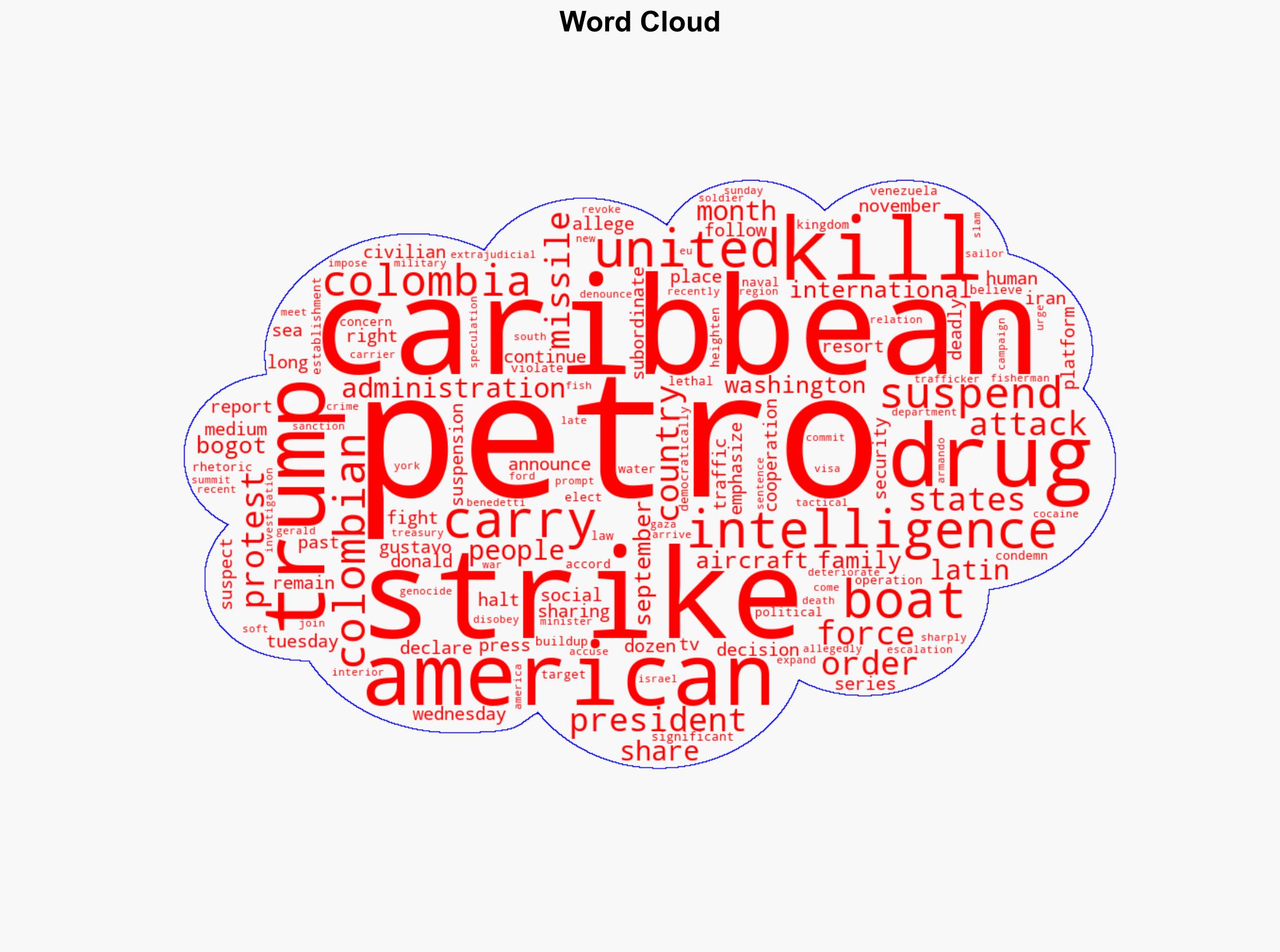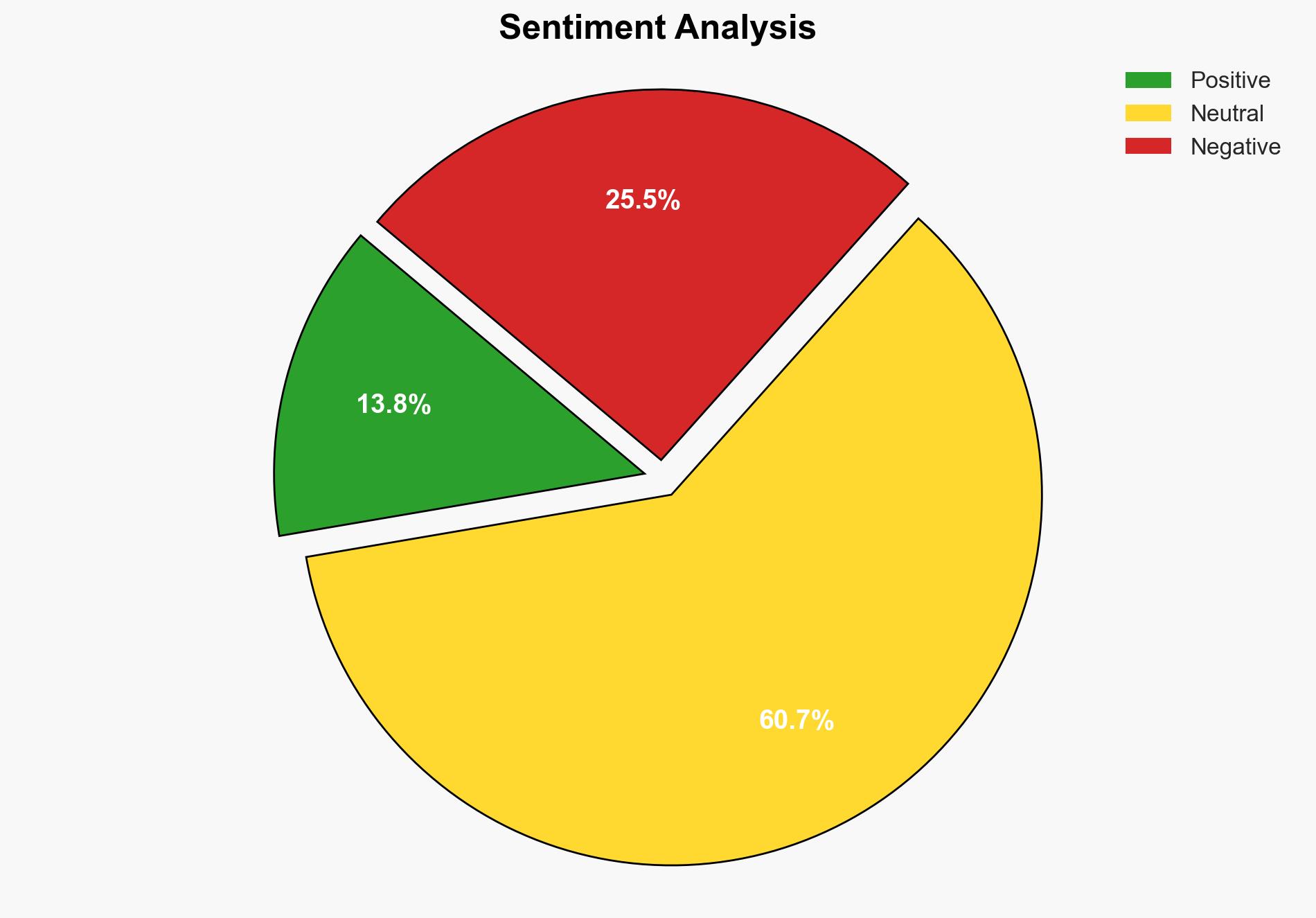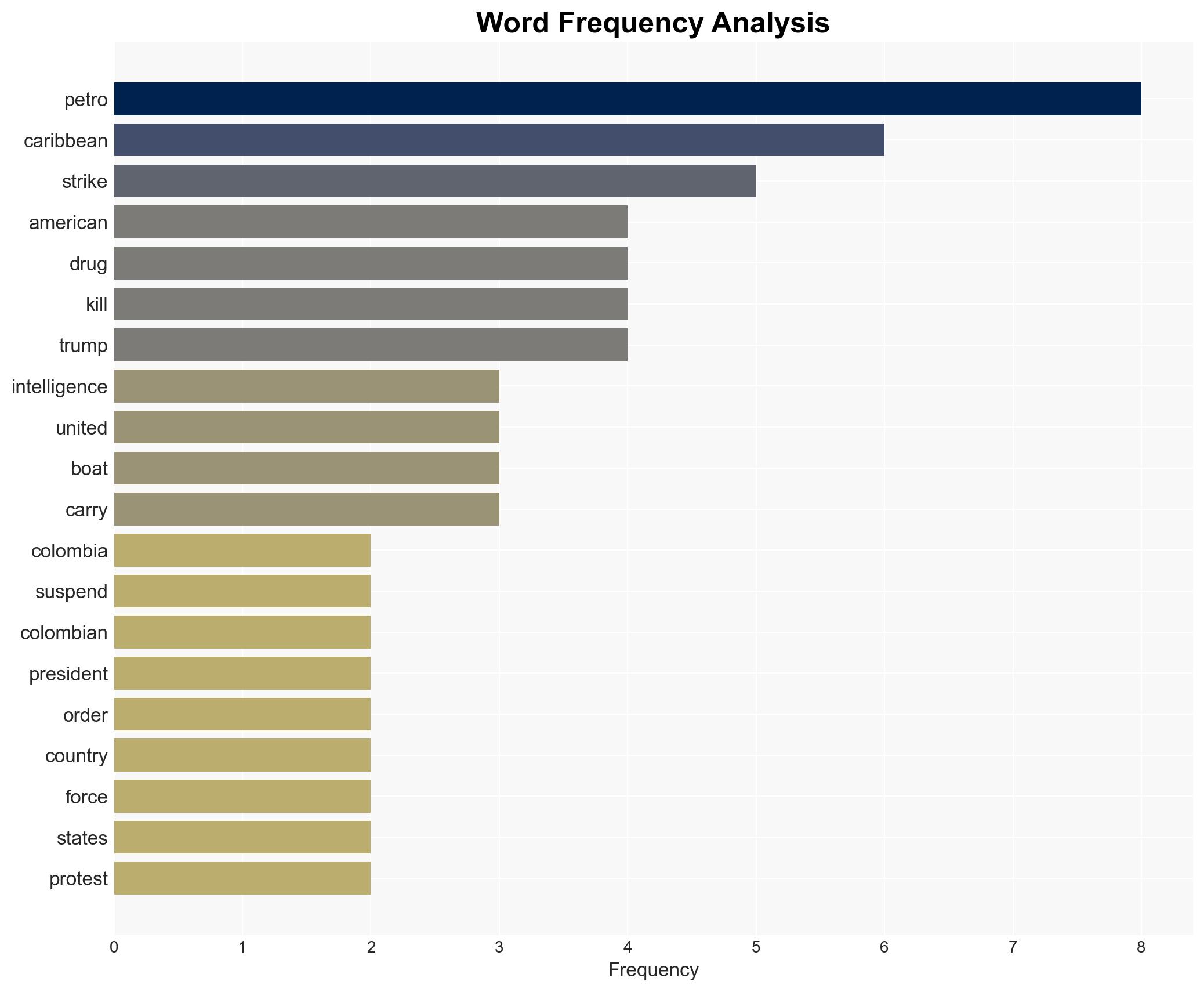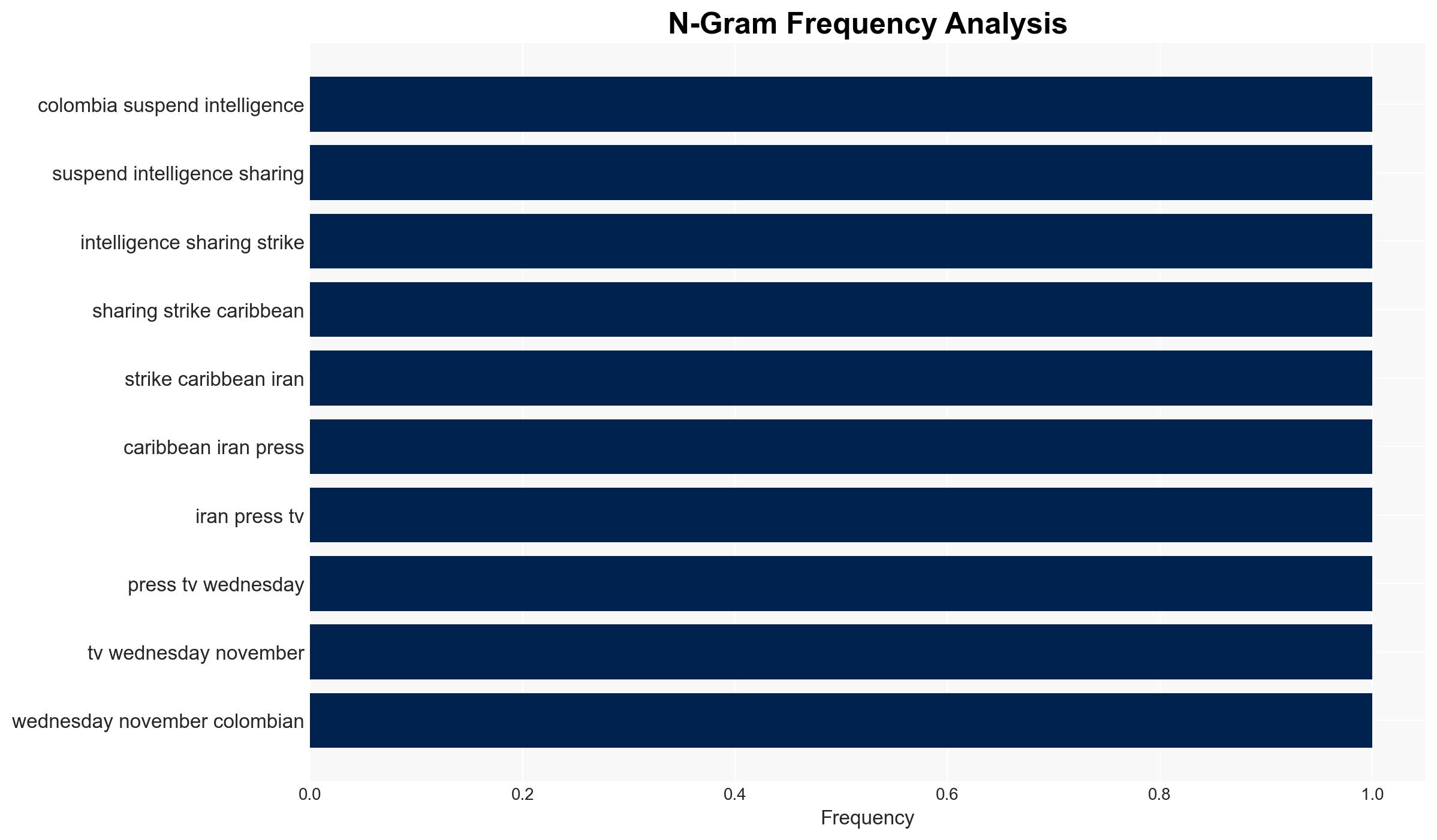Colombia suspends intelligence sharing with US over strikes in Caribbean – Globalsecurity.org
Published on: 2025-11-13
AI-powered OSINT brief from verified open sources. Automated NLP signal extraction with human verification. See our Methodology and Why WorldWideWatchers.
Intelligence Report: Colombia suspends intelligence sharing with US over strikes in Caribbean – Globalsecurity.org
1. BLUF (Bottom Line Up Front)
The suspension of intelligence sharing by Colombia with the United States represents a significant shift in regional security dynamics, likely driven by Colombia’s protest against perceived extrajudicial actions by the US. The most supported hypothesis is that Colombia is leveraging this suspension to assert its sovereignty and demand adherence to international law. Confidence level: Moderate. Recommended action: Engage in diplomatic dialogue to address Colombia’s concerns and mitigate potential regional instability.
2. Competing Hypotheses
Hypothesis 1: Colombia’s suspension of intelligence sharing is primarily a diplomatic maneuver to assert its sovereignty and protest US military actions perceived as extrajudicial.
Hypothesis 2: The suspension is a strategic realignment by Colombia, potentially seeking closer ties with other regional actors or global powers, possibly as a reaction to US policies perceived as aggressive or unilateral.
Hypothesis 1 is more likely given President Petro’s public condemnation of the strikes as extrajudicial killings and his calls for international investigations, indicating a focus on human rights and legal norms.
3. Key Assumptions and Red Flags
Assumptions: Colombia values its relationship with the US but prioritizes national sovereignty and human rights. The US actions are perceived as violating international law.
Red Flags: Potential bias in Colombian media portrayal of US actions. Lack of independent verification of the alleged civilian casualties.
Deception Indicators: Possible exaggeration of civilian casualties to galvanize domestic and international support against US actions.
4. Implications and Strategic Risks
The suspension could lead to a deterioration of US-Colombia relations, impacting regional security cooperation against drug trafficking and other transnational threats. There is a risk of Colombia aligning more closely with other regional powers, potentially altering the balance of influence in Latin America. Escalation could occur if the US increases military presence or rhetoric, potentially leading to regional instability.
5. Recommendations and Outlook
- Engage in diplomatic dialogue with Colombia to address concerns and reaffirm commitment to international law and human rights.
- Monitor regional alliances and shifts in Colombia’s foreign policy for signs of strategic realignment.
- Best-case scenario: Resolution through diplomatic channels, restoring intelligence cooperation and regional stability.
- Worst-case scenario: Further deterioration of relations, leading to regional instability and increased influence of rival powers.
- Most-likely scenario: Prolonged diplomatic tension with eventual resolution through international mediation or bilateral negotiations.
6. Key Individuals and Entities
Gustavo Petro, Donald Trump, Armando Benedetti
7. Thematic Tags
National Security Threats
Structured Analytic Techniques Applied
- Cognitive Bias Stress Test: Expose and correct potential biases in assessments through red-teaming and structured challenge.
- Bayesian Scenario Modeling: Use probabilistic forecasting for conflict trajectories or escalation likelihood.
- Network Influence Mapping: Map relationships between state and non-state actors for impact estimation.
Explore more:
National Security Threats Briefs ·
Daily Summary ·
Methodology





